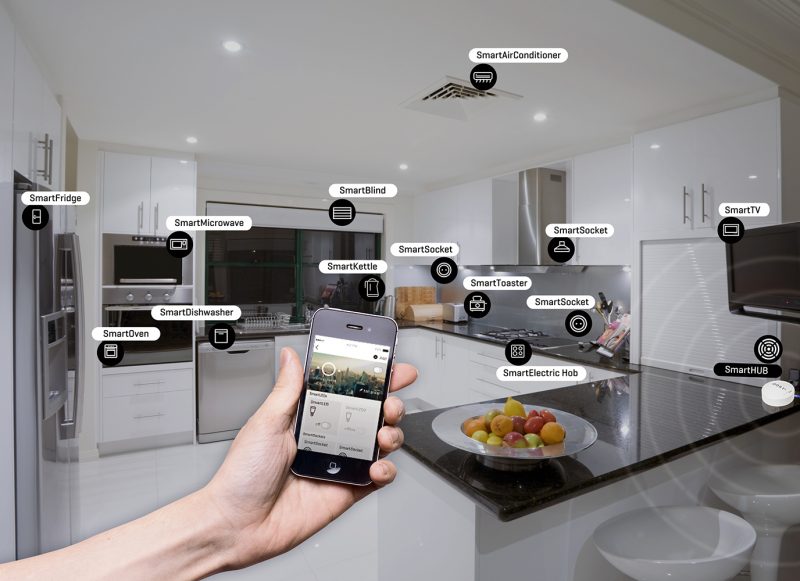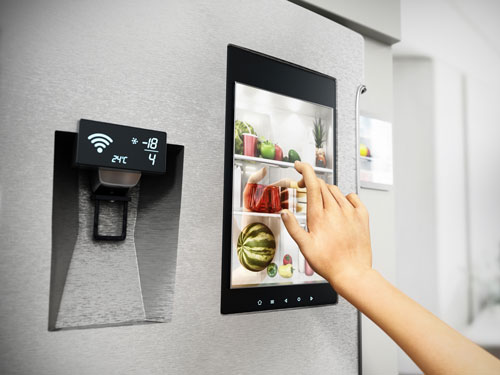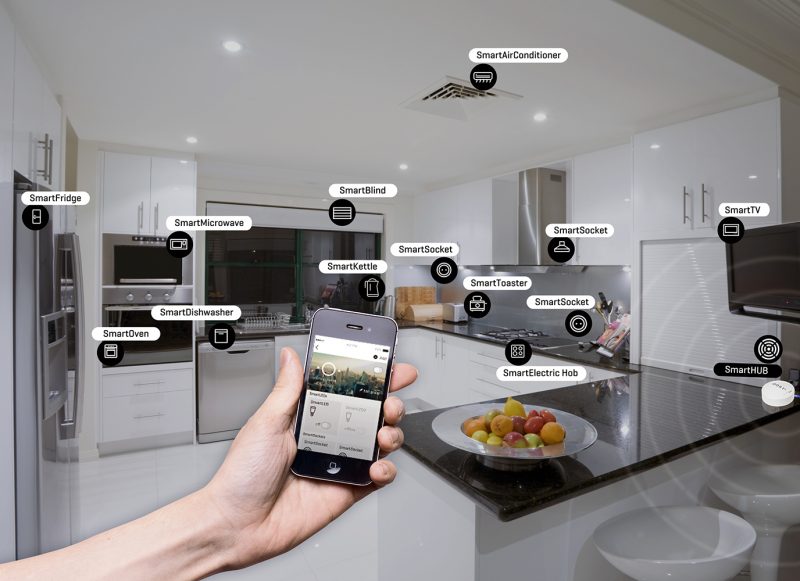Smart Home Appliances: Revolutionizing the Future of Living

The concept of smart homes has evolved significantly over the past decade, moving from a futuristic dream to a mainstream reality. Central to this transformation is the introduction of smart home appliances—devices that connect to the internet, provide enhanced functionality, and improve the overall quality of life. Whether you’re looking to save time, energy, or effort, smart home appliances have you covered.
In this article, we’ll explore the different types of smart home appliances, their benefits, and how they can enhance your daily life. We’ll also guide you on how to choose the right appliances for your home and answer common questions that arise when integrating these devices.
What Are Smart Home Appliances?
Smart home appliances are household devices that can be controlled remotely through your smartphone, voice commands, or automation systems. These devices connect to the internet via Wi-Fi or Bluetooth, enabling them to be operated from virtually anywhere.
Examples of smart home appliances include:
– Smart refrigerators that notify you when you’re running low on groceries.
– Smart ovens that let you preheat the oven from your phone.
– Smart washing machines that can be started and monitored remotely.
– Smart thermostats that learn your temperature preferences and adjust accordingly.
By integrating these devices into your home, you can experience convenience, energy efficiency, and enhanced control over your environment.
Types of Smart Home Appliances
1. Smart Kitchen Appliances
The kitchen is one of the most critical areas in any home, and smart appliances here can simplify meal prep, enhance cooking, and optimize energy usage.
Smart Refrigerators

A smart refrigerator is one of the most innovative appliances available. These refrigerators can connect to your phone or voice assistants, providing features like:
– Inventory tracking: Monitor what’s inside and receive alerts when you’re running low on essentials.
– Smart recipes: Get suggestions for meals based on the ingredients you already have.
– Temperature control: Adjust the temperature remotely via an app.
Pros:
– Saves time with efficient grocery management.
– Can help reduce food waste by keeping track of expiration dates.
Cons:
– Higher initial cost compared to traditional refrigerators.
– May require internet connectivity for full functionality.
Smart Ovens and Cooktops
Smart ovens allow users to control cooking functions remotely, making cooking more efficient and less stressful. With voice activation and remote control, you can preheat your oven or start cooking dinner while you’re at the store.
Features:
– Preheat remotely: Set the oven to preheat before you even get home.
– Cooking alerts: Receive notifications when your food is ready.
– Recipe suggestions: Some smart ovens suggest recipes and adjust cooking times and temperatures accordingly.
2. Smart Laundry Appliances
Laundry is often one of the most time-consuming household chores, but with smart washers and dryers, it doesn’t have to be. These appliances provide convenience, better performance, and time savings.
Smart Washing Machines
Smart washing machines let you control wash cycles, monitor progress, and get alerts—all from your phone. They can even suggest the best settings based on the type of laundry you need to clean.
Benefits:
– Remote control: Start, stop, or pause the washing machine from anywhere.
– Energy savings: Many models automatically adjust water usage and cycle time.
– Maintenance reminders: Get notified when it’s time to clean the machine or when a problem arises.
Smart Dryers
Similar to smart washing machines, smart dryers can be controlled remotely and send notifications to your phone when your laundry is dry. Some models offer smart features like humidity sensors that automatically adjust the drying cycle to prevent clothes from shrinking.
3. Smart Climate Control Appliances
A smart home isn’t just about entertainment and convenience—it’s also about comfort. Smart climate control appliances, including smart thermostats, help you manage your home’s temperature more efficiently and cost-effectively.
Smart Thermostats
A smart thermostat is designed to learn your temperature preferences and adjust the settings accordingly. By connecting to your smartphone, you can control the temperature of your home from anywhere.
Benefits:
– Energy efficiency: Smart thermostats help reduce your energy bills by optimizing heating and cooling.
– Automation: They can automatically adjust the temperature based on your schedule.
– Remote control: You can change the settings even when you’re not home.
Some popular smart thermostats include the Nest Thermostat and the Ecobee SmartThermostat.
4. Smart Cleaning Appliances
Cleaning your home can be tedious, but smart cleaning appliances make the task significantly easier.
Smart Vacuum Cleaners
Smart vacuum cleaners, like the Roomba, are popular for their ability to clean your floors without requiring your attention. These robotic vacuums are equipped with sensors and Wi-Fi connectivity, allowing you to control them remotely and schedule cleaning sessions.
Key Features:
– Automated cleaning: Program the vacuum to clean at specific times.
– Mapping: Many models map your home for more efficient cleaning.
– Voice control: Some vacuums can be controlled through voice assistants like Alexa or Google Assistant.
Benefits:
– Saves time by cleaning your floors while you do other tasks.
– Can be scheduled to clean when you’re not home, so you always return to a clean house.
Benefits of Smart Home Appliances
1. Enhanced Convenience
The most significant benefit of smart home appliances is the added convenience. With a simple voice command or tap on your phone, you can control virtually every appliance in your home. Whether it’s turning on your washing machine while you’re out or preheating your oven on the way home, these appliances make daily tasks easier.
2. Energy Efficiency and Cost Savings
Smart appliances help optimize energy usage, which can lead to long-term cost savings. For instance, smart thermostats adjust heating and cooling based on your habits, reducing unnecessary energy consumption. Similarly, smart washers and dryers optimize water usage, ensuring minimal waste.
3. Better Security and Safety
Some smart appliances, like smart refrigerators and smart ovens, can send alerts if something goes wrong. For example, if your fridge door is left open or your oven has been left on for too long, you will receive a notification on your phone. These alerts not only help save energy but also prevent potential accidents.
How to Choose the Right Smart Home Appliances
Choosing the right smart home appliances depends on various factors, including budget, compatibility with other devices, and personal needs. Here are some tips to help guide your decision:
1. Consider Your Home’s Existing Smart Ecosystem
Before investing in new appliances, assess your existing smart home setup. Are you already using Amazon Alexa, Google Assistant, or Apple HomeKit? Ensure that the appliances you choose are compatible with your preferred ecosystem.
2. Evaluate Functionality
Smart appliances offer numerous features, but it’s essential to focus on the ones that matter most to you. For example, if you spend a lot of time cooking, a smart oven with recipe suggestions may be highly beneficial. If you have a large family, a smart washing machine that can handle heavy loads might be more suitable.
3. Look for Energy Efficiency
Many smart appliances are designed to be more energy-efficient than their non-smart counterparts. Look for appliances that offer energy-saving modes, smart scheduling, and remote control features to help reduce your utility bills.
FAQs About Smart Home Appliances
Q1: Are smart home appliances easy to set up?
A1: Most smart home appliances are designed to be user-friendly and come with step-by-step setup instructions. Many can be connected to your smartphone through dedicated apps, making the installation process straightforward.
Q2: Do smart appliances work without an internet connection?
A2: While some basic functions of smart appliances may work offline, most features, such as remote control, scheduling, and integration with other devices, require an internet connection.
Q3: Are smart home appliances secure?
A3: Smart home appliances generally use encryption to protect your data. However, it’s important to ensure your Wi-Fi network is secure and to regularly update the software of your devices to prevent security breaches.
Conclusion
Incorporating smart home appliances into your living space not only enhances convenience but also promotes energy efficiency, security, and comfort. With options ranging from smart refrigerators and smart ovens to smart thermostats and robotic vacuums, the possibilities are endless.
By selecting the right smart appliances for your needs, you can create a home that is connected, efficient, and easy to manage.
For more information on smart home technologies, check out our other resources:
– Best Smart Home Devices
– How to Build Your Smart Home

